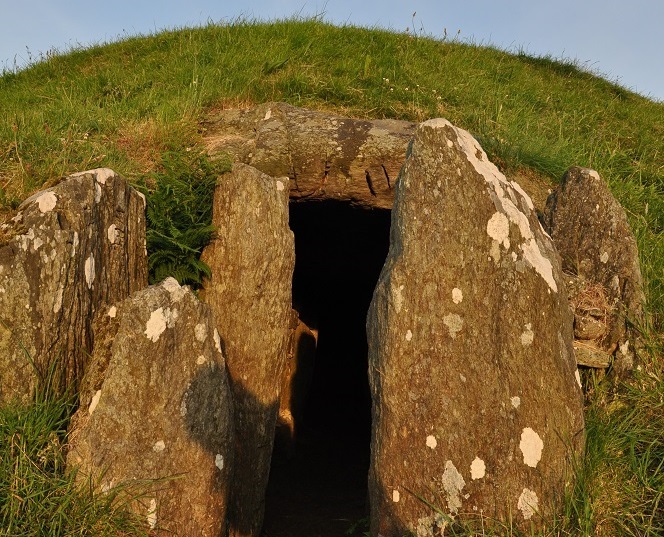News | Friday, 23rd June 2017
University archaeologist helps discover new Bronze Age cairn complex around Bryn Celli Ddu
Dr Ben Edwards was involved in the team excavating the 5,000 year-old passage tomb on Anglesey

A series of Late Neolithic to Early Bronze Age cairns have been discovered along a ridge behind Bryn Celli Ddu by archaeologists including Dr Ben Edwards from Manchester Metropolitan University.
Colleagues from the University of Central Lancashire and Cadw were also part of the team which made the extraordinary findings.
Bryn Celli Ddu, or the ‘Mound in the Dark Grove’, is a Late Neolithic passage tomb dating to around 5,000 years ago, located in north west Wales, on the island of Anglesey. It has a special feature, which means that on the longest day of the year, a beam of light is cast down the passage, lighting up the chamber. It is one of the most evocative monuments in Wales, and over the last three years a public archaeology project has grown around it.
This year’s archaeological excavation started on the 11th June and will continue until the 24th June, when the focus has been on a series of circular anomalies brought to light by conducting a geophysical survey over a field located immediately behind Bryn Celli Ddu.
Dr Ben Edwards, Senior Lecturer in Archaeology & Heritage from Manchester Metropolitan University said: “The geophysical survey, combined with innovative digital modelling, has raised the possibility of a cairn cemetery surrounding the original monument, something we never suspected before”.
Dr Seren Griffiths, from the University of Central Lancashire, said: “We know that Bryn Celli Ddu sits in a much more complicated landscape that previously thought. Over the last three years, we have discovered 10 new rock art panels, and this year the picture has developed to include further evidence for a new Bronze Age cairn along with a cluster of prehistoric pits”.
“We have evidence for over 5,000 years’ worth of human activity in the landscape, ranging from worked flint derived from the tool making efforts of our prehistoric ancestors to prehistoric burial cairns and pits with pottery deposited within.”
Over the two weeks, the excavation will host hundreds of school children alongside youth groups and the general public. It is led by academics from the University of Central Lancashire, Manchester Metropolitan University, and Cadw, the historic environment service for the Welsh Government.
On the 17th June there was a free public open day, welcoming over 750 people to view the site and to take a tour of the open trenches.
Dr Ffion Reynolds, from Cadw, said: “Since we started the project we have discovered that Bryn Celli Ddu was never in isolation, there was activity happening all around.”
“We knew this would be a good project but it’s turning out to be very exciting.”




